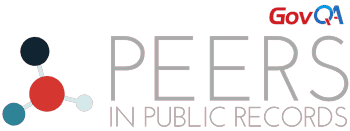Health confidentiality and privacy are important and necessary considerations put in place so that individuals may protect their health information from falling into the wrong hands. Managing personal privacy has its challenges as the use of devices becomes more prevalent and the number of security breaches continues to climb.
The COVID-19 pandemic has become the latest complication to health confidentiality. Though the pandemic has had its ebbs and flows since it began in the United States in early 2020, its impact on health privacy and confidentiality has been a constant. As health agencies and government entities have found, there is a delicate balance needed to safeguard personal health information while protecting the health of the public at large.
The Battle for Pandemic Public Records
The pandemic’s onset triggered an unprecedented shift in everyday life, including how people feel about their own health and safety. Though COVID-19 helped shape how some citizens feel about access to information, it did not change the fact that health information and other personally identifiable information (PII) are protected under the Health Insurance Portability and Accountability Act (HIPAA).
In some states, citizens have sued for a variety of COVID-related information, including community response to the pandemic and for records related to those who had been diagnosed with the disease in their communities. Some government agencies have blocked or denied such attempts at accessing the data due to the confidential nature of some of the information. While some governments have not responded at all, others respond with generalized information or data with PII redacted.
Protecting Patient Privacy Under HIPAA While Keeping the Public Informed
Since the onset of the pandemic, government agencies have walked a fine line in providing public records while protecting citizens’ PII. At the height of COVID, the health and wellbeing of communities across the country had been compromised and caused increased concern among private citizens. Officials have had to balance how to inform citizens about COVID data and regulations while taking care to protect and secure personal information under HIPAA laws.
States have taken different approaches to how they share information, taking care to avoid identifying individuals while attempting to maintain transparency. Earlier on in the pandemic, Florida health officials released broad demographic information, including the counties where positive cases had been reported, as well as age and gender of those individuals. On the other hand, New York shared much more information, including how many citizens were being tested and monitored for COVID and identifying specific buildings, such as schools or places of worship, as contagion points.
The issue of health confidentiality had become so prevalent during the pandemic that some government bodies developed regulations for the public to reference. Policies and regulations established by the U.S. Department of Health and Human Services, for example, created guidelines around how law enforcement, paramedics, other first responders, and public health authorities can use PII.
Records Oversight During COVID and Beyond
The COVID-19 pandemic put health confidentiality under the microscope and shed light on the need to balance data privacy with transparency. Overseeing citizens’ PII and preserving health confidentiality will continue to be critical issues for state and local governments in the future. HIPAA laws, in place to protect sensitive health information, will likely gain even more importance as data grows and becomes even more portable. Additionally, citizens expect to have access to important information which impacts them and their communities.
Government agencies grappling with how to manage records containing sensitive information or PII have any number of tools and technology at their disposal. From redaction software to a best-in-class security platform, GovQA’s software solutions keep information protected and government agencies compliant.
Join the Conversation. What are your peers prioritizing as they look to 2022?
Take the 2022 Peers In Public Records Survey.

The Peers in Public Records Newsletter (formerly FOIA News) is a bi-monthly e-newsletter brought to you by GovQA. It is a collection of the latest trends in public record requests and government transparency initiatives, shared stories, live roundtables, informative case studies, and actionable knowledge that will help you calm the chaos and keep your organization compliant. Send your comments to peers@govqa.com.
Subscribe to the Peers in Public Records Newsletter
© Copyright 2021. PiPRSurvey. All rights reserved.


